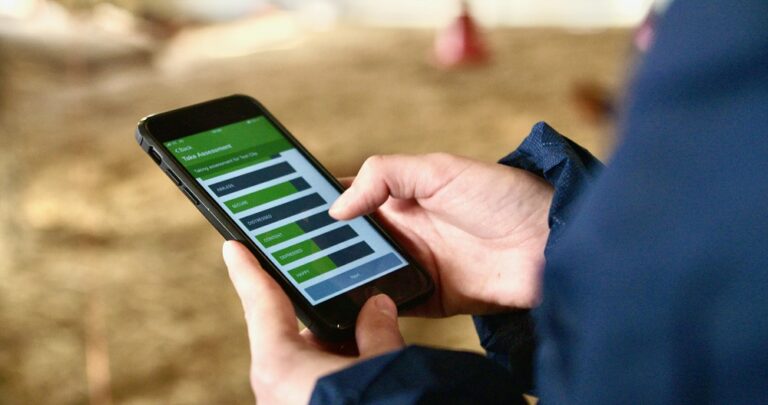Waitrose is rolling out a new mobile app that will help the retailer assess and begin to understand the “emotional wellbeing” of its farm animals.
The first of its kind, the app aims to manage and improve opportunities that animals have to experience a good and enriching life – a process that Waitrose hopes will help it lead further improvements to animal welfare standards across the UK.
Developed by leading animal behavioural scientists at Scotland’s Rural College (SRUC) and licensed by Waitrose for trial and development for two years, the app is designed to help farm managers and auditors better understand, recognise and record emotionally expressive behaviour that – in part – contributes to an animal’s quality of life.
Although the app itself is designed to be practical and easy to use on farm, it is underpinned by rigorous scientific research, which its creator, Professor Francoise Wemelsfelder, calls “Qualitative Behavioural Assessment” (QBA).
The method allows animal welfare inspectors to record different expressive qualities of behaviour through the app, such as being relaxed, tense, playful or anxious – behaviours that are indicative of an animal’s emotional body language and possible signs of their general well-being.
This will help field teams assessing Waitrose farms develop their skills and help them describe and quantify the different expressions they observe when looking at their animals. In turn, this will help them better understand the mood the animals are experiencing while interacting with each other and their environment.
James Bailey, executive director at Waitrose, said: “This is a huge development for the industry as it is the first time any retailer has explored welfare measures based on the concept of an animal’s freedom to express positive emotions.
The project forms one part of Waitrose’s new 10 year agriculture strategy, which – among other ambitions – sets out to give animals good and enriching lives, pay farmers fairly, ensure all raw materials are responsibly sourced and significantly reduce greenhouse gas emissions from all UK farms and fisheries.”


